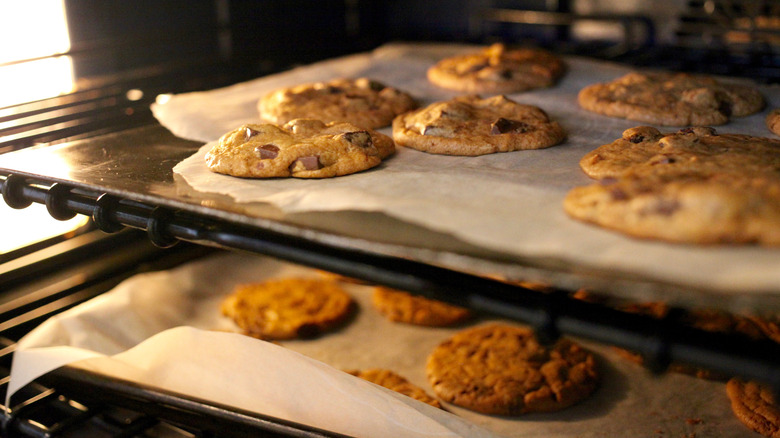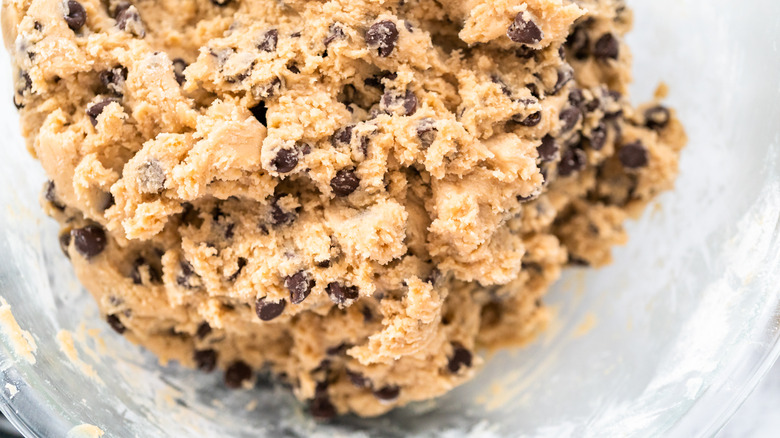Why Do Your Cookies Keep Ending Up So Hard?
Some people like their cookies soft and gooey, others prefer them light and crispy. But there's one thing most can agree on — and it's that you don't want to end up with cookies that are hard and dense. If you've measured everything perfectly, and followed all the steps in your recipe, but are still ending up with cookies that you can't even bite into, chances are it's because you've accidentally made a cookie that's too high in gluten.
According to The Kitchn, this occurs when you over-mix the dough. Mixing the dough naturally causes gluten to develop in the flour, and while you do need a good amount of gluten to give your cookies structure, too much of it will result in hard cookies. That means if you put your stand mixer on the highest speed and let it run for an indeterminate amount of time, the dough is inevitably going to toughen up. Then when you go to bake your cookies, they'll come out of the oven hard or even inedible.
How to know when you over-mixed your cookie dough
Avoiding over-mixing your cookie dough may seem like an easy fix, but just how much mixing is considered too much? If you're using a stand mixer or a hand mixer, author Dorie Greenspan shared in her cookbook (via Food52) that it starts by dumping in the flour all at once instead of gradually. This results in less overall mixing. Greenspan says to pulse the mixer just until the flour is combined enough to not fly out of the bowl, then switch to low speed, and stop when the flour "disappears into the dough."
If you're mixing your dough by hand, blog Baking Bites explains that the streakiness of the dough is the most reliable indicator. As per the blog's instructions, simply do the bare minimum of mixing, then stop as soon as the dough comes together and no longer has visible streaks of flour. Baking Bites also points out that folding in chocolate chips will also contribute to over-mixing, so if you tend to be heavy handed, add the chocolate chips just before the dough becomes uniform.

